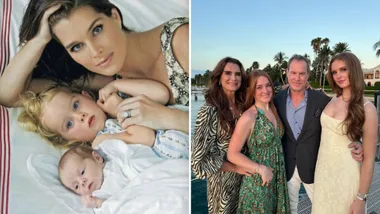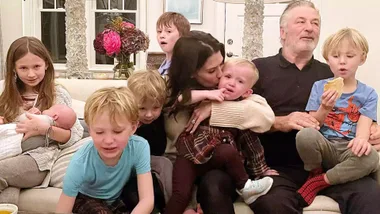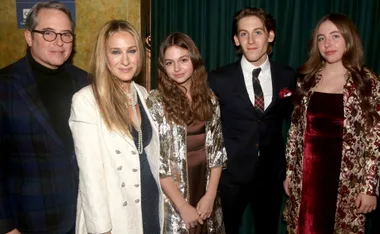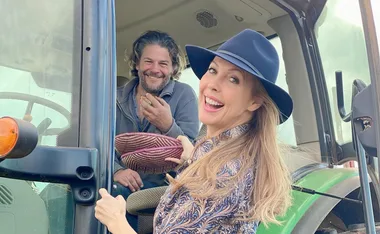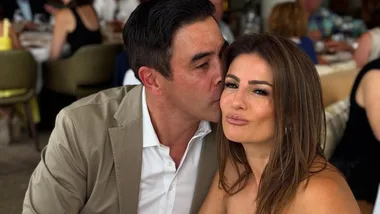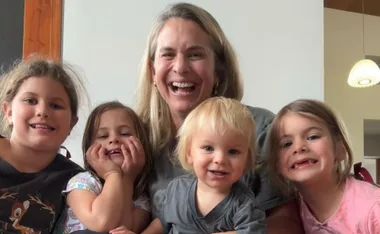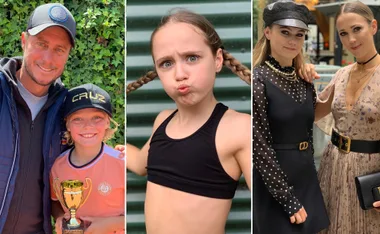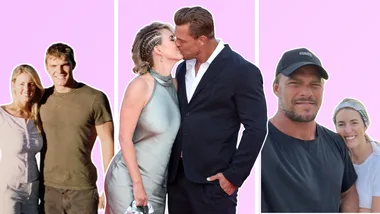Julius is four years old, he has Down syndrome, and he is featuring in his second advertising campaign. Here, his mum Catia Malaquias tells us what makes him unique, and what makes him just like any other kid.
“So, what is different about Julius?” I asked my 5 year-old daughter Laura, trying hard to sound matter-of-fact.
We were talking about being a unique individual — how everyone is a little bit different and yet we are all the same in lots of ways — and after applying the question to some of her friends and family members, we came to her four-year-old brother, who has Down syndrome.
I had anticipated that conversation hundreds of times since Julius was born; the day that Laura would finally ask about her brother’s condition and I thought that moment had arrived. You see, I always wanted Laura first to know her brother for the little person he is rather than for the medical label that others would generally see and had decided that we would have the talk only when it became relevant to her world and she initiated the discussion.
But her response wasn’t quite what I expected. “Easy!” she said, “he’s a model and he’s even been in a magazine!” At about the same time, my youngest — 2 year-old Drea — piped up with “Juju doing mo-del-ling!” And Julius who was sitting at a table drawing, jumped up from his chair, threw his hands up in the air and doing one of his “camera poses” said, “look mummy — mo-del-ling!”, to the laughter and giggles of his sisters.

It’s been exactly six months since Julius featured in his first advertising campaign for eeni meeni miini moh and The Australian Women’s Weekly published a story, in its February 2013 issue, about Julius and his modelling adventure. Since then, Julius and I have flown to Brisbane for another two separate photo shoots, the most recent being for a new Spring Summer 2013 collection ad campaign for eeni — launched this month.
In many ways, life for our family hasn’t changed much — each day was, and still is, filled with the usual challenges of juggling the needs of a young family, work pressures and the demands that most other families face, with the odd “curve-ball” thrown in for good measure.
But in other ways, life has changed. What was a spur-of-the moment decision, to suggest to eeni that they should consider featuring a child like Julius in their ad campaigns — born out of a desire to broaden the spectrum of the types of children represented in mainstream advertising — has turned into something that Julius absolutely enjoys and which has given him the opportunity to embark on an adventure that so far has been filled with unbridled enthusiasm, fun experiences, new friends and an invaluable sense of being good at something new — at something that is his. And to my delight, Julius seems good at it.
I remember being a bit taken aback when someone at the first photo shoot suggested that, because Julius was not self-conscious in front of the camera, he was “a natural”. I had taken Julius along hoping, at best and in the pursuit of a “greater good”, that he would endure having his photo taken but really expecting the worst — a full blown tantrum for which I would have to apologise profusely for having wasted everyone’s time. Instead, on each occasion Julius has loved his turn in the limelight — and after each photo set at the last shoot I had to pull him away as he asked for “More, MORE!”

For his big sister in particular, Julius’ modelling adventure has been a source of interest and pride and she delights in telling anyone who will listen, particularly her little school friends from her “Show and Tell” soapbox, about her brother’s trips to Brisbane and how he has his picture in a catalogue, on a billboard and in a magazine. Not that she is surprised — after all, she always says “Julius is the coolest little brother ever”.
We have been overwhelmed and touched by the response of readers from all parts of the community to Julius’ story in AWW. Sometimes we find ourselves talking to people — at the shops, in restaurants, in parks — who tell us about the little boy model they read about a few months ago, and then, with some incredulity, realise that the “other” boy they are talking about is actually Julius — the little rascal at their feet.
As for my husband and I, the support we have received from AWW, eeni and in particular the broader community has encouraged us to continue to pursue what we see as crucial to the outcomes for Julius and his sisters: a shift in cultural attitudes and perceptions towards people with disabilities. We do this on a day-to-day level by encouraging Julius’ full participation in every sense and by trying to live life as a typical family without letting a medical label define us or our aspirations for Julius. But, more broadly, we think it is important to challenge unhelpful stereotypes whenever possible by presenting children like Julius for who they really are — ordinary yet rich and diverse people, with disability being only one of many factors that makes them unique individuals in their own right.
In case you are left wondering if Laura knows about her little brother’s condition, she recently said to me that the reason Julius sometimes takes a bit longer to learn “rules” is because of “the thingy Julius was born with and which I wasn’t born with”, to which I replied “what thingy?” “Oh you know mum, the Down syndrome” after which she continued to roll her playdough at the kitchen table, seemingly unfazed, and I continued to chop onions, which was just as well because at least I had an explanation for the tears that welled in my eyes — not because of sadness but because of pride and gratitude for my little family that never ceases to surprise me with their resilience, love and celebration of one another.

